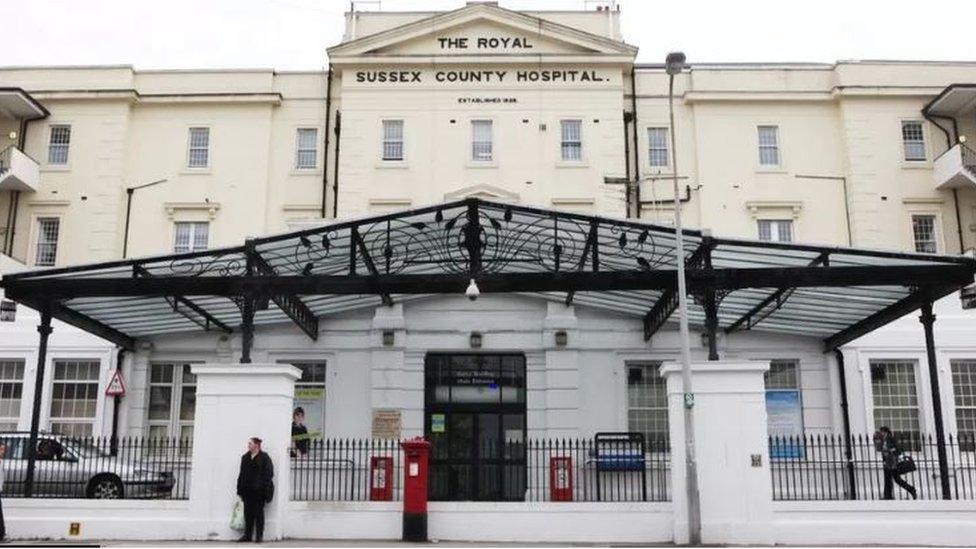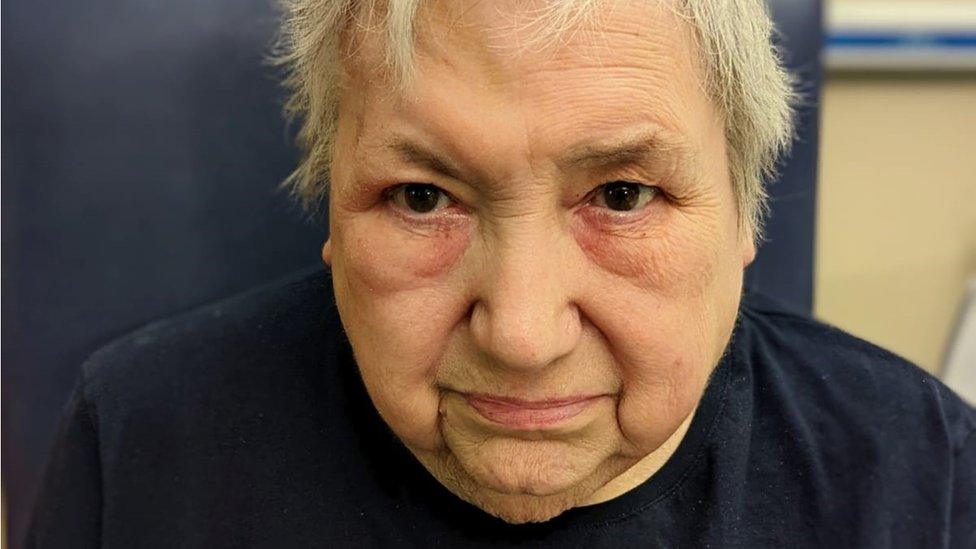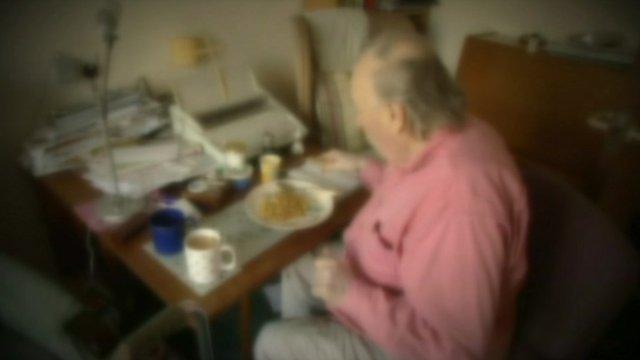NHS discharges: Reasons for hospital departure delays revealed
- Published

This is the first time figures have been published that break down the reasons for discharge delays
Hundreds of patients are taking up hospital beds across England every day despite being ready to leave, according to NHS data.
Figures show the biggest obstacle to speedy discharge is lack of beds in other settings, such as care homes.
Other reasons include hold-ups in sorting transport, medicines and paperwork.
The government said it wanted to "ensure patients leave hospital as soon as they are medically fit".
It is the first time data has been published which breaks down the reasons for discharge delays.
The need to install specialist equipment in a person's home or disagreements between a patient, their family and medical staff are among other reasons given.
The figures showed that, among patients in England in June who had been in hospital at least 14 days, an average of 1,791 a day were unable to be discharged due the lack of a bed in a residential or nursing home
While 1,727 a day were waiting for a rehabilitation bed in a community hospital or a similar setting.
An average of 2,033 patients a day were waiting for resources to assess and begin care at home, the data showed.
An NHS spokeswoman said: "Delayed discharges put considerable pressure on the NHS, which is why the health service has been working closely with colleagues in local authorities on a range of initiatives to send more patients home when they are medically fit to leave."
Miriam Deakin, director of policy and strategy at NHS Providers, the membership organisation for NHS trusts in England, said: "Delayed discharge is caused by several factors including a capacity crunch of staff and beds in social care and community health services - both of which need appropriate funding."

University Hospitals Sussex is the trust with the highest average of delayed discharges due to a wait for resources to begin care at home
Around one in five patients in hospitals in the south-east of England experience delays in discharge, a higher proportion than any other region.
University Hospitals Sussex was the NHS trust with the highest average of delayed discharges due to a wait for resources to begin care at home, at 99 patients per day.
It also had the highest average for delays due to waits for a bed in a community hospital at 85 patients per day.
Manchester University NHS trust recorded the highest average due to waits for a bed in a residential or nursing home, at 81 patients per day, followed closely by Leeds Teaching Hospitals and Liverpool University Hospitals trusts, with both averaging 80 per day.
Overall, an average of 12,334 hospital beds in England per day in June were occupied by people ready to be discharged - down from 12,597 in May and 12,760 in April.
The equivalent figure for the same month in 2022 was 11,590.
A Department of Health and Social Care spokesman said: "We are working to ensure patients leave hospital as soon as they are medically fit, and the number of patients each day who are ready to be discharged but still in hospital has reduced by 2,200 in England since January.
"We are investing a record £1.6bn to support timely and safe discharge from hospital.
"This is on top of £700m to ease hospital pressures over last winter and buy thousands of extra care packages and beds."

Follow BBC South East on Facebook, external, on Twitter, external, and on Instagram, external. Send your story ideas to southeasttoday@bbc.co.uk, external.
- Published22 September 2022

- Published1 November 2022

- Published30 December 2022

- Published23 November 2013
